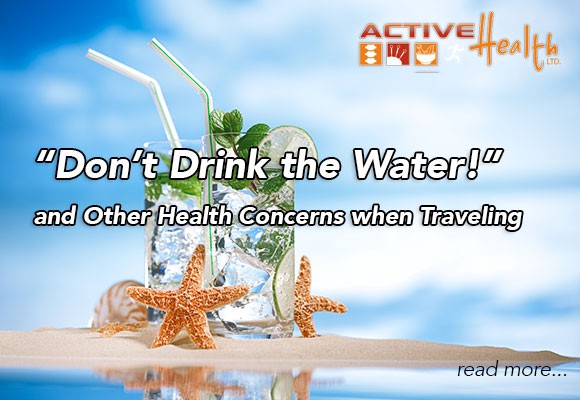
Be prepared before you go
Have a checkup before you leave, and make sure you’re up to date on all your immunizations. When traveling to certain destinations, you may need additional immunizations such as typhoid, yellow fever, or cholera. The CDC has a handy destination guide which lists the immunizations you may need before traveling to specific countries. Pack a first-aid kit, and make sure you have a supply of any medicines you may routinely take. Filling prescriptions in foreign countries may be impossible.
Eat and drink safely
“Montezuma’s Revenge,” or travelers’ diarrhea, is one of the most common complaints. Food and water-borne illnesses run the gamut from mere inconvenience to the truly dangerous. A few simple rules can protect you.
Do eat:
- Food that has been cooked and served hot
- Pasteurized dairy products
- Drinks which have been made with boiled water and are served hot, such as coffee or tea
- Foods which you have washed in purified water and peeled yourself
- Commercially bottled water
- Water which has been boiled or disinfected
Don’t eat (or drink)
- Raw or undercooked foods, including produce and fruits (unless you have washed it in purified water and peeled it yourself)
- Salads and other dishes with fresh uncooked produce
- Food from street vendors
- Ice, unless it has been made from purified or bottled water
- Tap water
- Unpasteurized dairy products or fruit juices
In short, if you can’t boil it, cook it, or peel it yourself, don’t eat it.
More Tips
- Always wash your hands before preparing food or eating it.
- Pack some protein bars and other non-perishable food in case fresh, hot food is not available.
- Pack some water purification tabs in case bottled water is not available
- Carry some alcohol-based hand sanitizer in case soap and water aren’t available.
- Avoid swallowing or getting water in your ears if you’re swimming or bathing because water-borne disease is also a consideration in some regions. Water can be contaminated while still looking clean.
